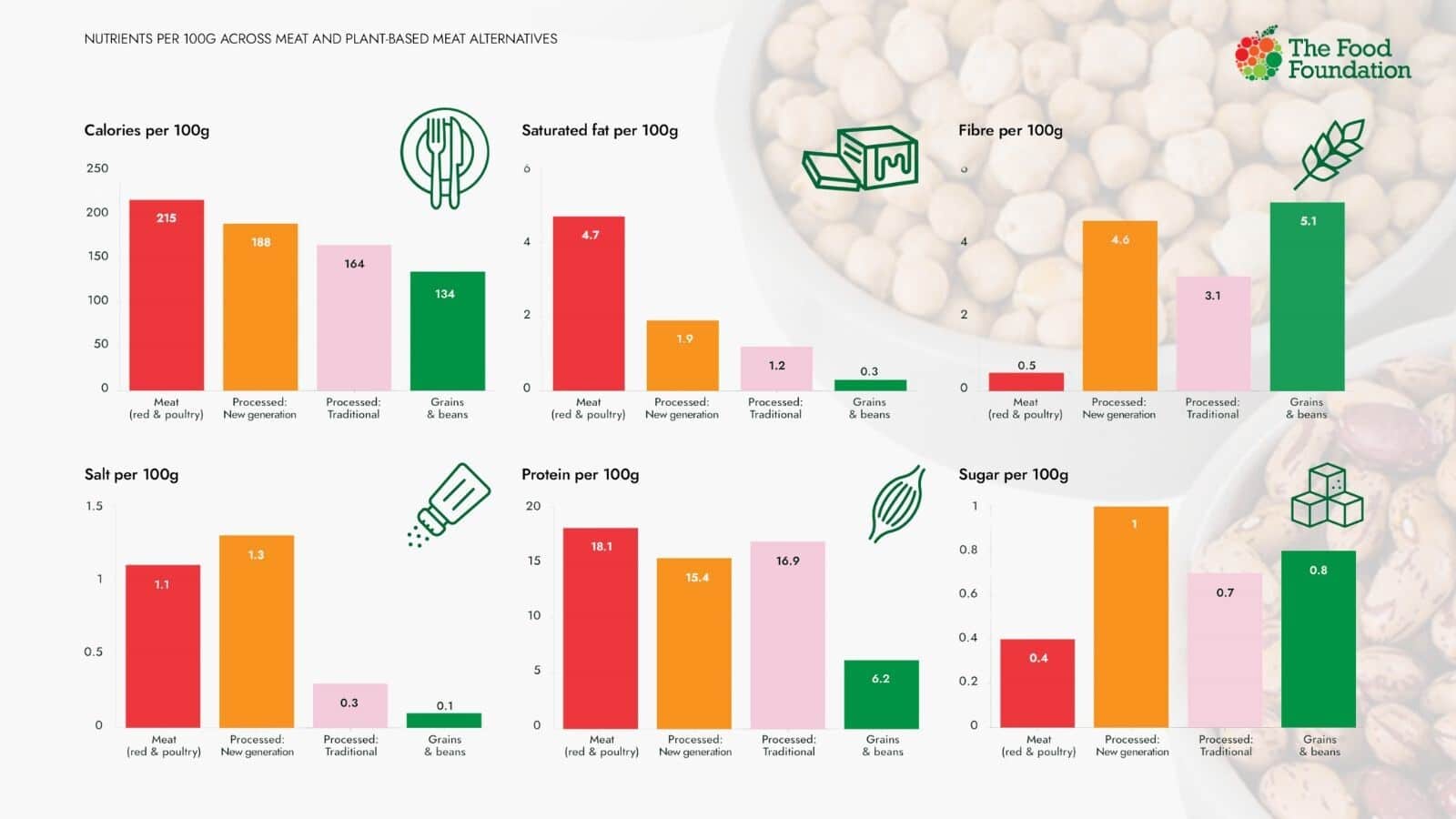A new report from The Food Foundation, published today has revealed the truth behind alternative proteins marketing campaigns, with in depth analysis of 68 different plant-based protein alternatives.
The meat alternatives were examined for their nutritional, environmental and price credentials and then compared to both meat and each other.
The report selected products from processed new generation plant-based meat alternatives (including Beyond Meat, THIS branded products, Quorn, Linda MacCartney, Vivera and retailer own-brand plant-based burgers), processed traditional plant-based meat alternatives (such as tofu, tempeh and seitan), and less processed plant food meat alternatives (natural sources of products like beans and grains including some ready-to-eat and tinned bean and grain products).
The study found that all plant-based meat categories come with significantly reduced greenhouse gas emissions and water footprints compared to meat, while also containing fewer calories, lower levels of saturated fat and higher levels of fibre on average. The less processed alternative proteins (beans and grains) were the highest rated on health and environmental factors with lower amounts of saturated fat, calories and salt and the highest amount of fibre of all products. They are also the best value for money out of all the categories.
The study also found that processed plant-based meat alternatives are only marginally lower in protein relative to meat, despite public concerns about getting enough protein from plant-based diets. Processed new generation plant-based meat alternatives contain 18% more salt than meat, the highest level of salt of all three plant-based alternative categories, and three times as much salt as processed (traditional) plant-based meat alternatives like tofu have.
Consumers pay a premium for more processed plant-based alternatives like tofu, Future Farm and THIS brand compared to meat despite their environmental benefits. The processed (new generation) alternative category is 73% more expensive per 100g than the meat category while the processed (traditional) category is 38% more expensive.
An increasing number of people are changing their diets in order to play their part in tackling climate change and to be healthier. Livestock accounts for 15% of total greenhouse gas emissions globally and the UK eats a third more meat than the global average. In order to address climate worries, a transition towards reduced meat consumption is crucial, with this new report showing that all plant-based meat alternative categories come with significantly reduced greenhouse gas emissions (GHGEs) and water footprints compared to meat.
The report also shows, however, that the nutritional implications of shifting towards eating alternative proteins is mixed, depending on the type of alternative protein you are opting for. Processed meat alternative products are more likely to contain higher levels of salt, and only a third are fortified with iron and vitamin B12 (as would be found in meat). More traditional forms of processed plant-based meat alternatives, such as tofu, tempeh and seitan, were found to be less likely to be ultra-processed and contained much lower levels of salt and were lower in saturated fat than more recently developed plant-based alternatives.
Rebecca Tobi, Senior Business and Investor Engagement Manager, said, “Despite increasing public concern about the healthiness of many plant-based meat alternatives we found a huge variety of options for consumers looking to eat less meat. While plant-based alternatives that mimic the taste of meat can play a really useful role in helping people to shift towards more plant rich diets and come with significant environmental benefits, alternative sources of protein to meat such as beans perform strongly compared to both meat and other plant-based meat alternatives.”





